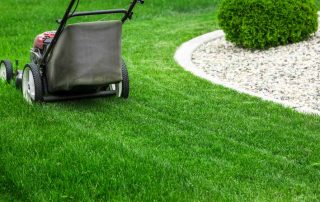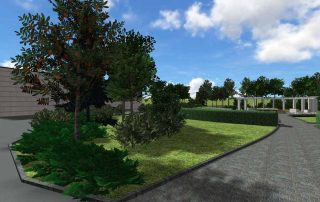Shield Your Turf: Expert Tips for Commercial Lawn Summer Heat Care
Pugh's Earthworks Summer can be a challenging season for commercial landscapers, property managers, and lawn care businesses. The extreme heat can wreak havoc on even the most well-maintained lawns, leading to unsightly brown patches and stressed grass. The professionals at Pugh's Earthworks will guide you through the best practices for Commercial Lawn Summer Heat Care keeping commercial lawns lush and healthy during the scorching summer months. From understanding the impact of heat stress on grass to implementing effective summer lawn care techniques, we have got you covered. The Science Behind Heat Stress Heat stress occurs when temperatures rise above what grass can comfortably tolerate. This leads to a range of issues, including wilting, discoloration, and even death of grass blades. High temperatures cause grass to lose water faster than it can absorb, leading to dehydration. Additionally, heat stress can make lawns more susceptible to diseases and pests, further complicating maintenance efforts. Symptoms of Heat-Stressed Lawns Recognizing the symptoms of heat stress early can save commercial lawns from permanent damage. Look for signs such as: Wilting or drooping grass blades Discoloration, including yellow or brown patches Increased presence of weeds and pests Thinning grass coverage Common Misconceptions About Heat Stress Many property managers and landscapers believe that frequent watering can solve all heat-related issues. While hydration is crucial, overwatering can lead to other problems like fungal growth and soil erosion. Understanding the balance between adequate watering and other care techniques is essential for effective summer lawn care. The Importance of Proper Watering Optimal Watering Techniques Watering is the most critical aspect of summer lawn care. It is essential to water deeply and infrequently, allowing moisture to penetrate the soil and reach the roots. Early morning is the best time to water, minimizing evaporation and ensuring that the grass absorbs the maximum amount of water. Avoiding Overwatering Pitfalls - Overwatering can be as harmful as under-watering. It can lead to root rot, fungal diseases, and wasted resources. To avoid these pitfalls, use a soil moisture meter to gauge the lawn's hydration needs accurately. Aim to provide about 1 to 1.5 inches of water per week, adjusting based on rainfall and soil conditions. Utilizing Advanced Irrigation Systems - For large commercial properties, traditional watering methods may not be efficient. Consider investing in advanced irrigation systems such as drip irrigation or smart sprinklers. These systems can be programmed to deliver precise amounts of water at optimal times, ensuring even coverage and reducing water waste. Mowing Strategies for Summer Ideal Mowing Heights - Mowing height plays a significant role in maintaining a healthy lawn during summer. Cutting grass too short can expose the soil to direct sunlight, causing it to dry out faster. Aim to keep grass at a height of 3 to 4 inches during the hottest months. This height allows for better moisture retention and provides shade to the soil. The Importance of Sharp Blades - Using dull mower blades can damage grass blades, making them more susceptible to heat stress. Ensure that mower blades are sharp [...]




